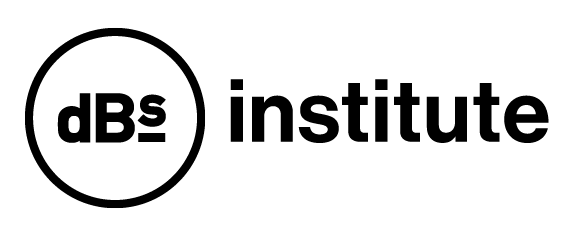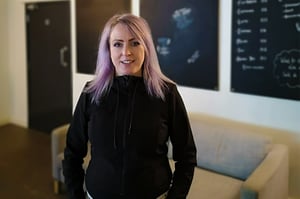April Donnelly from Rock-up Ready recently spoke to our students at dBs Bristol about improving creativity and managing performance anxiety. This is part of a bigger mission to help people who work in the music industry improve their mental wellbeing. We asked April to explain why this is so important for a career in music, and share some of her top tips and techniques.
Could you tell us about the work Rock-up Ready does for anyone who may not have heard of you?
Rock-up Ready promotes the idea that looking after your mind is just as important as looking after your body. One way we do this is sharing ideas with music industry students that will help them thrive in their future career. We want to help them establish good habits now, as these will support them later on.
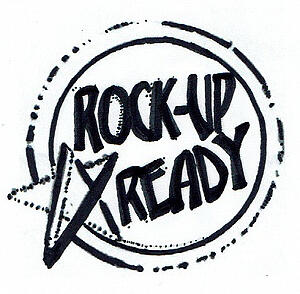 It helps to understand a little bit about what’s going on in your mind and body when you’re dealing with stress, or anxiety. But mainly we focus on simple, straightforward ideas that are easy to build into your day-to-day life straight away.
It helps to understand a little bit about what’s going on in your mind and body when you’re dealing with stress, or anxiety. But mainly we focus on simple, straightforward ideas that are easy to build into your day-to-day life straight away.
Why is this so important if you want to work in the music industry?
Working in the music industry can be so fulfilling, but when we talk about wellbeing, it’s important to understand the working culture, and consider what we call an employers’ ‘duty of care’.
Some students will already know the working culture across the vast majority of music jobs is long hours, late nights and lots of competition. That last point is key, knowing there is always someone behind you who would work for longer hours with less money. That makes it really hard to say no to things, and difficult to push back when unreasonable demands are placed on you.
When it comes to an employers’ duty of care, there’s a bigger than usual proportion of self-employed and freelance workers in music. There’s often no employer as such, and lots of roles mean working for a small outfit that looks after one part of a bigger contract. It’s usually the bigger organisations who can afford to care about those working for them, and make sure the right safeguarding is in place.
Unfortunately, especially at the beginning of your career, you can be several layers away from that. If you’ve heard of zero hours contracts and the gig economy, well the name gig economy comes from the music industry, so that tells you a lot.
Do you think the industry itself needs to make improvements in protecting the wellbeing of its members?
Yes, it's unrealistic to place all that responsibility on individuals, people can only build up so much resilience. Plus in the modern workplace we know that people perform better and are more productive when they feel at their best. But there are lots of new organisations out there working to make things better.
It’s a good idea to check them out online and understand what sort of help is available. Music Support provides a backstage safe space at many UK festivals. This is a drug and alcohol free zone staffed by people who have been trained to give you support. It’s a place just to calm down and get away from the hubbub really.
Help Musicians is another organisation that offers mental health support and a helpline called Music Minds Matter. MusiCares has a broader remit, but offer can offer financial and addiction support in some circumstances.
Changes are happening but it’s going to take some time before the industry fundamentally becomes a healthier place to work.
So what can students do in the meantime to help them through some of the challenging aspects of their careers?
It’s a common myth that some have more resilience than others. That’s like saying some people are just born with great drumming skills. You improve your resilience through regular practise. The mental health version of ‘5-a-day’ has been around for a while now.
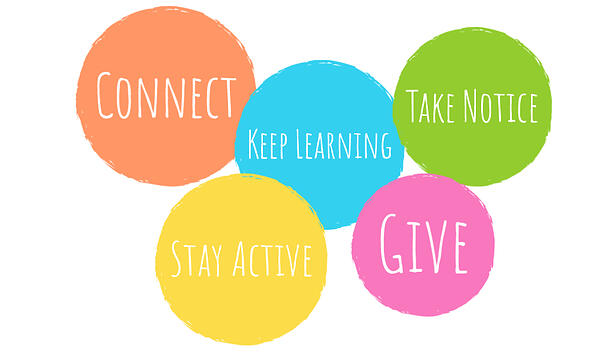
They are Connect, Keep Learning, Stay Active, Take Notice and Give - read more about what they mean on the Mind website. Just think of your wellbeing like a bank account. If you put more in when things are OK, you will have more credit to get you through the tough times. Start by asking yourself these two key questions:
- What are the everyday things I enjoy that nurture and fulfil me?
- How often do I do these things?
If the answer to the second is not very often, that needs addressing. Resilient people are those who feel nourished and supported in their daily life. They have more resources to draw upon when they need them.
We’re doing a series of tips this week for University Mental Health day, search for #UniMentalHealthDay on social media and if you follow Rock-up Ready on Facebook or Twitter, we share quick tips and ideas all the time.
My personal number one tip is to develop little rituals planned around things you do each day. When you wake up is a good one – meditate, do stretches or have a big drink of water, these are all good ways to start your day. If you always have a morning coffee or tea, make that the time you slow down, breathe deeply and set your intentions for the day.
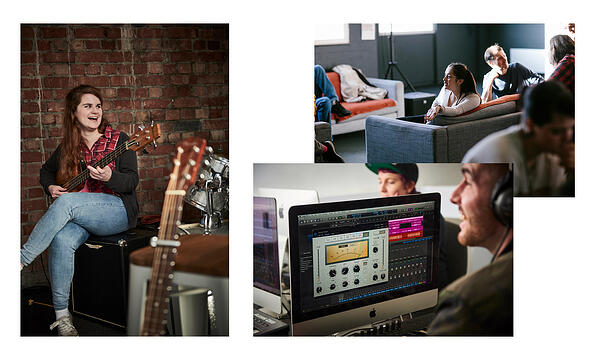
I find listening to podcasts a really useful way to fall asleep. It blocks the mental chatter but doesn’t interfere with natural sleep processes the way watching something does. If you listen to wellbeing podcasts this will keep it high on your agenda and give you ideas to try. Two that I like are the Elevate Music podcast and Music & Mental Health. But comedy or audiobooks are good too – nothing too dramatic!
Learning how to preserve your wellbeing involves a bit of self-discovery. Reflecting on what values are important to you, which relationships you prize, where your strengths and weaknesses lie, it all helps you understand what will bring you contentment. This gives you a greater sense of purpose in your work, too.
Authenticity has a strong currency right now, in music, business, politics; it’s a desirable attribute. Without a deep understanding of who you are, how do you know what kind of work you want to do? Or what special qualities you bring to your role?
Tell us a bit about your history, what led you to focus on wellbeing in the music industry and why you started Rock-up Ready.
I used to manage employee wellbeing for large businesses, but at festivals through the summers I worked in artist liaison and backstage hospitality. The gap between the support offered to a corporate workforce and those working in music was huge, too big. This translated into some of the awful headlines we’ve seen over the years, and I’m sure many more suffered behind the scenes.
I began studying Psychology and developed a real passion for it. There’s a great deal of information and helpful research that people don’t really have access to. Wellbeing interventions tend to involve going on a course, or making big changes to your life, but employees need simple ideas they can fit into their working day.
As I was developing these, it became clear that the music industry is where I really want to make a difference, so I launched Rock-up Ready. Then I heard this quote, “It’s easier to build strong children than it is to repair broken men” and I realised that working with music industry students would help build a strong workforce for the future.
If there’s one thing you’d like readers to remember, what would that be?
Learn how to ‘build yourself strong’ now. Don’t wait until you are overwhelmed and your mental health is starting to suffer!
Follow Rock-up Ready on Facebook and Twitter (@rockupready) for more wellbeing tips and signposting.
Helpful resources:
- https://www.musicsupport.org
- https://www.helpmusicians.org.uk
- https://www.musicmindsmatter.org.uk
- https://www.grammy.com/musicares
- https://www.mind.org.uk/workplace/mental-health-at-work/taking-care-of-yourself/five-ways-to-wellbeing/
- Elevate Music Podcast

